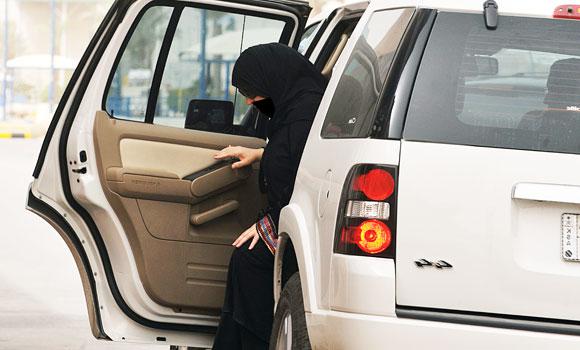
Jeddah, Oct 26: Organizers of the women’s “Oct. 26 Driving Campaign” abandoned their plans late Friday by canceling Saturday’s driving demonstration throughout Saudi Arabia following intense pressure from the Ministry of Interior that said it will arrest participants. “Out of caution and respect for the Interior Ministry’s warnings ... we are asking women not to drive tomorrow and to change the initiative from an Oct. 26 campaign to an open driving campaign,” activist Najla Al-Hariri told Agence France Presse on Friday.
The wire service reported that several women said they had received telephone calls from the ministry, which issued a statement on Thursday warning online activists Friday that it may apply cyber-laws that ban political dissent to individuals supporting the women’s driving campaign scheduled today. Cyber-law violations could result in a five-year prison sentence. Interior Ministry spokesman Gen. Mansour Al-Turki said the Kingdom’s traffic laws will be enforced.
“It is known that women in Saudi Arabia are banned from driving, and laws will be applied against violators and those who demonstrate in support of this cause,” Al-Turki said. There have been several government warnings this week about the driving campaign, coinciding with Saudi women posting social videos of them driving on Saudi streets usually with a mahram in the passenger seat. Yet the warnings signal a tough crackdown on traffic law violators.
Organizers have been careful about the campaign, urging women to drive separately and not engage in mass driving exhibitions or demonstrations. Dozens of women this week also applied for driver’s licenses at Dallah Driving School in Jeddah and had three women at a time approach the counter and ask for an application. Even early Friday, organizers and participants vowed to drive today despite the mounting pressure from the Ministry of Interior and anti-driving proponents, which are mostly men commenting on social media websites. Fatima Saleh, who had planned to participate in the action, said women do not want to cause problems.
“In fact, women driving will help reduce traffic congestion. My dream is to drive legally here by 2014,” she said. Maryam Al-Rubian, a Saudi woman who was participating in the campaign, said: “I hope that the Saudi authorities realize that women also have basic rights such as the right to drive, and are as good as men at driving cars. We are not comfortable hiring taxis. Taxi drivers harass us on a daily basis.”
Saudi Arabia does not have legislation barring women from driving. Many Saudi women have posted footage of them driving on social media websites including Facebook, YouTube and Twitter. They have called on women with foreign driver’s licenses to join the campaign. Abdullah Al-Saidi, a Riyadh-based
engineer, said: “Women should be allowed to drive in the Kingdom because they also have roles to play in society. In fact, many are running their own companies and need this mobility.” Earlier, three women Shoura Council members called for an end to the ban; while 200 scholars visited the royal court in Jeddah to make a case against women driving.





Comments
Add new comment